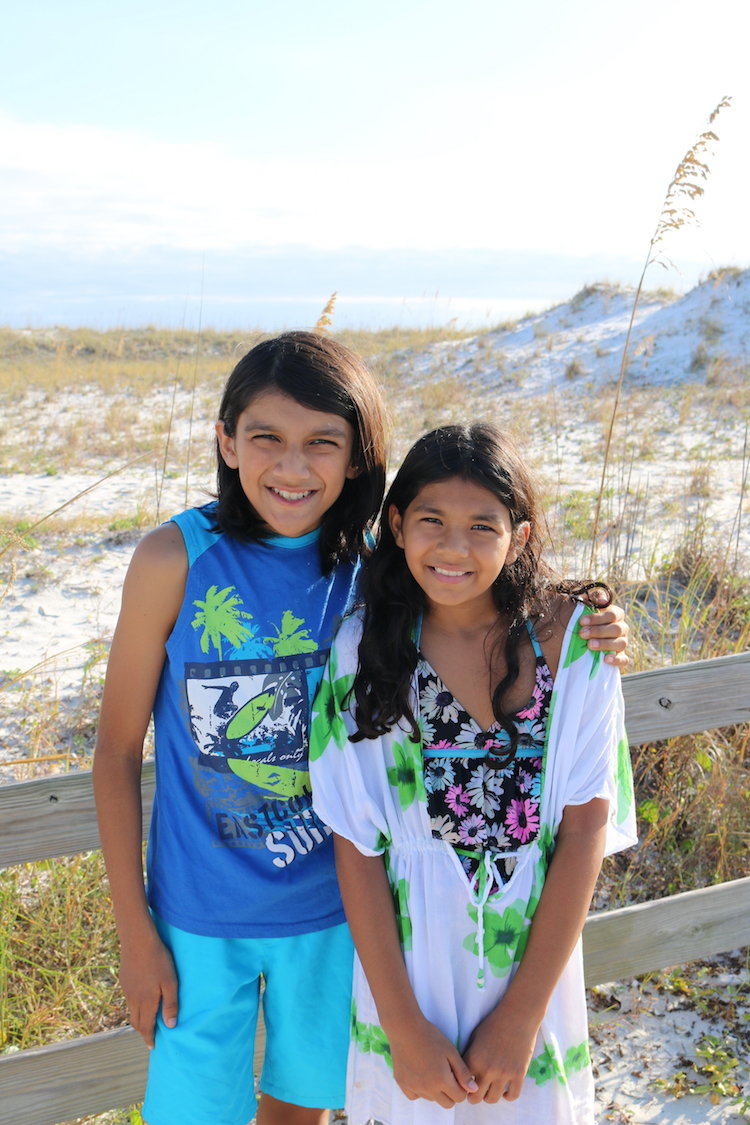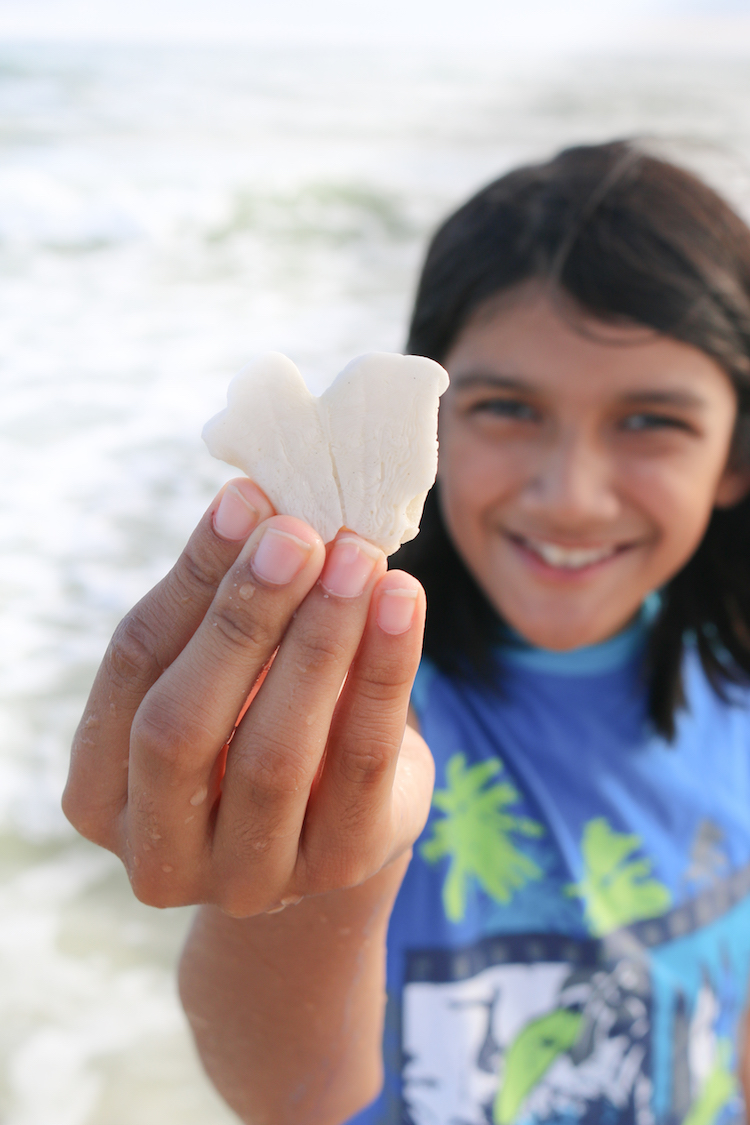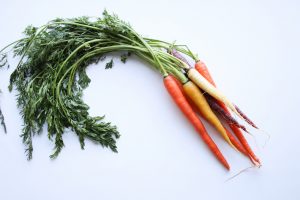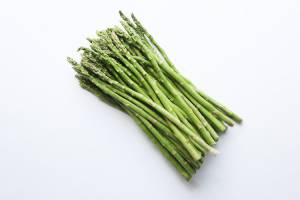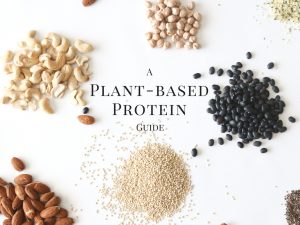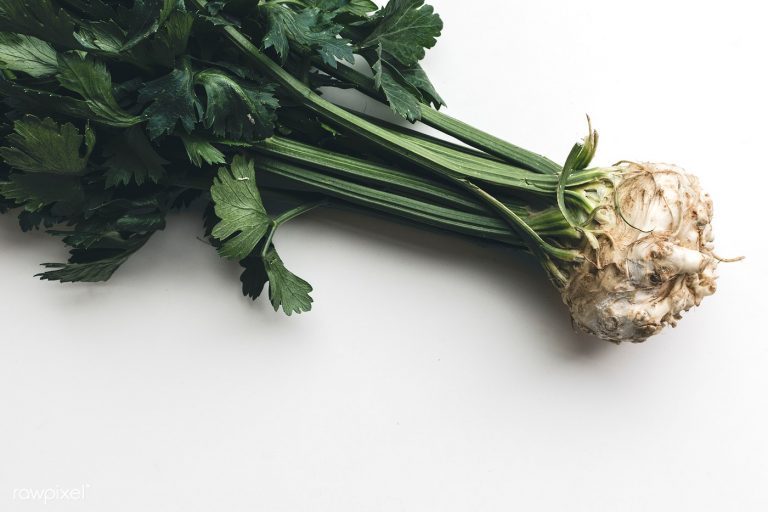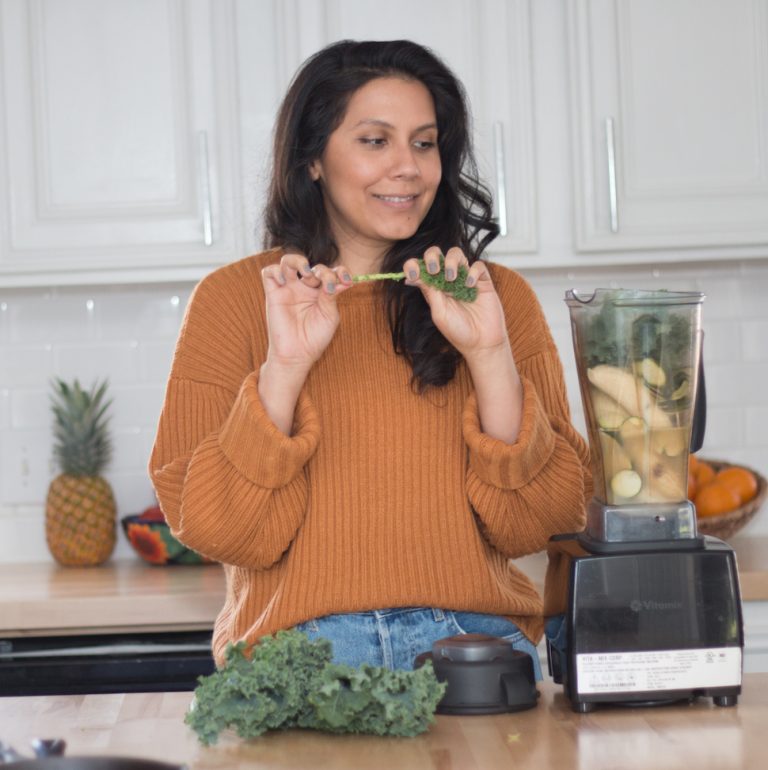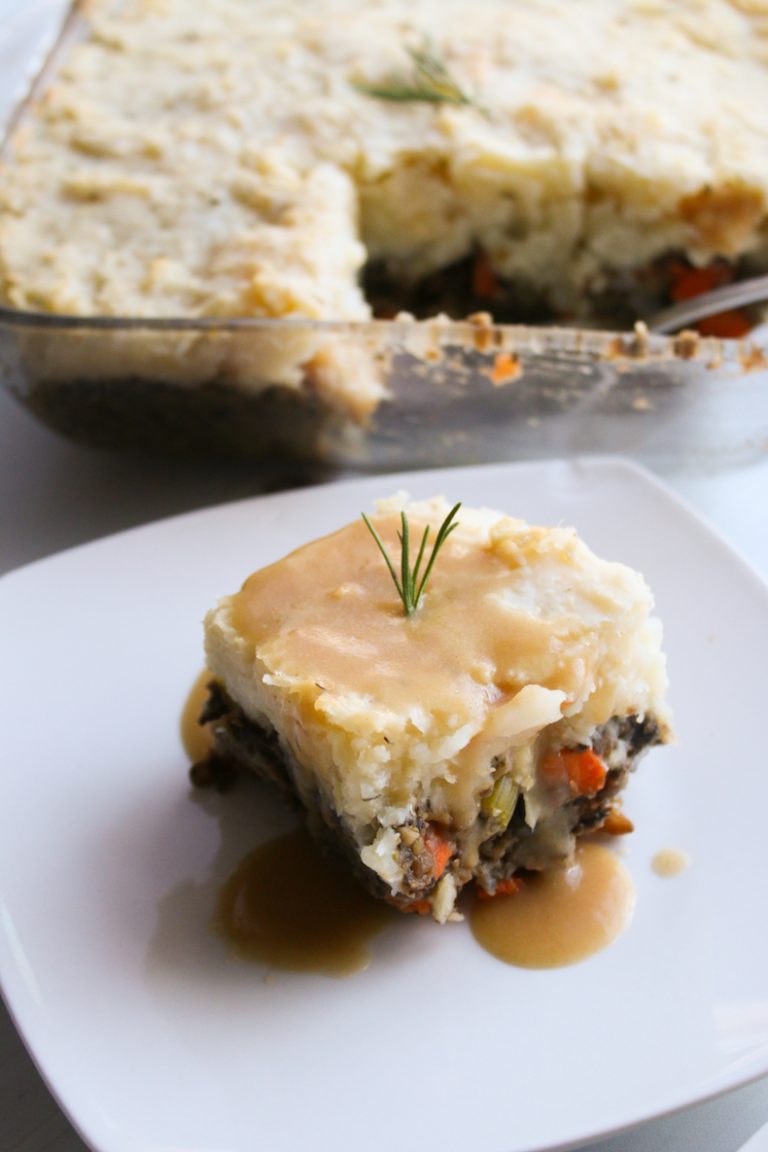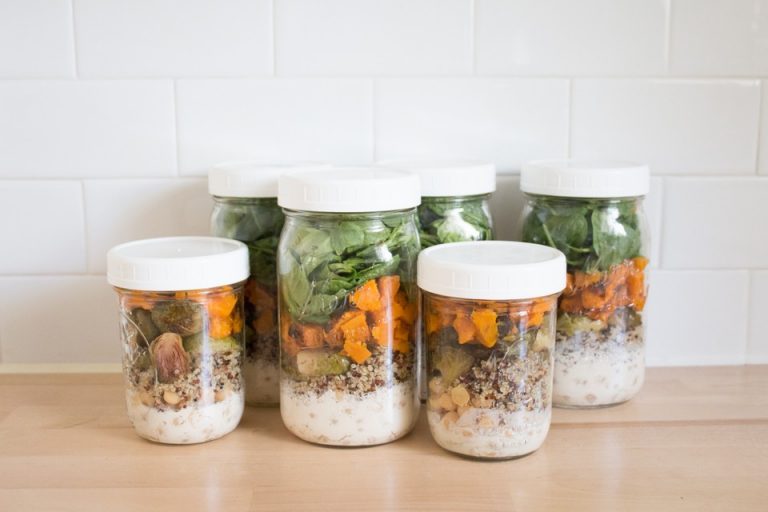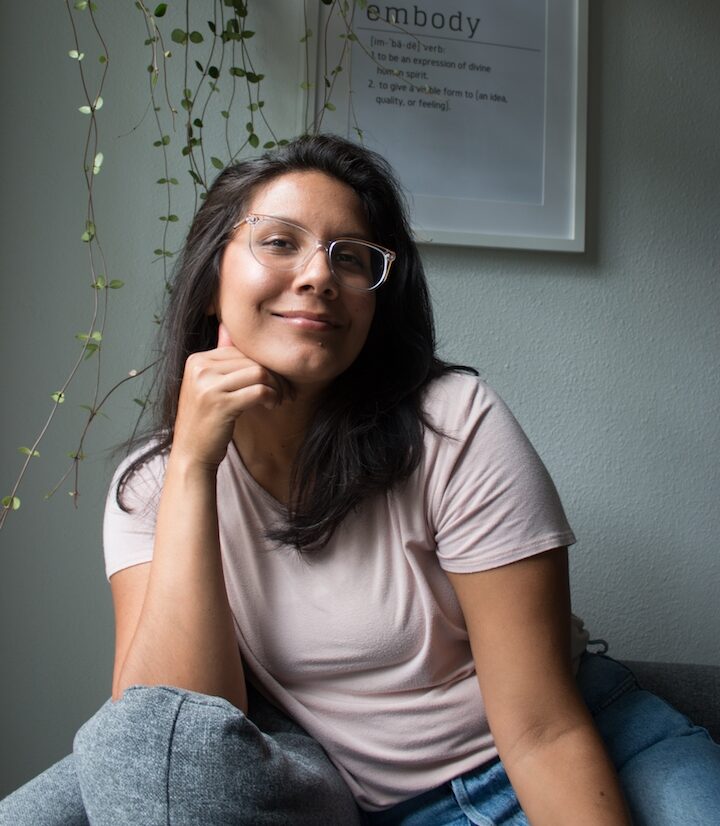It’s that time of year when the sun is shining and summer is finally here and in full effect. Our families are spending more time at the pools, beaches, and/or outside in general, so I thought this would be a good time to touch on the subject of the best natural sunscreen that is safe for the body. Here in this post, I will talk about sunscreens, why it is used, the do’s and don’ts of sunscreens, how to find a natural sunscreen, and which natural sunscreen brands I recommend.
Natural Sunscreens | The Do’s & Don’ts
Recently I was asked by a friend and mom about which sunscreen I use for my kids. I was scared to tell her that I hardly ever use sunscreen on myself or my children. I can hear the gasp now, yes, I know. I rarely find it necessary and the thought of rubbing all these unknown chemicals on my children’s skin isn’t really appealing to me.
I do however exercise precautions around sun exposure and since so many are frequently using sunscreen, I thought to do some of my own research on the topic and share it here.
Are Sunscreens Safe?
Our skin is the largest organ of the body, and what many people don’t understand is that it is also an absorbent. This means that anything we apply to our skin is absorbed and will enter the bloodstream directly. Eventually, making its way to the liver to be broken down, but not until it’s had its effects on the living tissue in our body. This is why I’m a BIG believer in that if we can’t eat it then it doesn’t belong on our skin.
I get that people don’t want to get burned. Or get cancer? Or wrinkles? Or sunspots? That’s no fun, but using sunscreen can also be more harmful than good. The sun gives us so much and the lack of sun has actually been linked to nutrient deficiencies, fertility problems, heart disease, inflammatory bowel disease, depression, and, surprisingly, cancer.
Many conventional sunscreens contain many different ingredients that have carcinogens and/or hormone disrupters. Experts believe that exposure to them can be changing us for the worse.
Here is an interesting find…
The EWG reveals that the chemicals commonly used in sunscreen are endocrine disruptors, and estrogenic, and may interfere with thyroid and other hormone processes in the body.
UVA & UVB Rays
Sunlight is made of 3 different wavelengths:
- Ultraviolet A (UVA) rays are more prevalent in the early morning and late afternoon hours.
- Ultraviolet B (UVB) rays are stronger during the middle of the day.
- Ultraviolet C (UVC) rays don’t reach the earth.
The difference between UVA & UVB rays is that the UVA rays penetrate your skin and eventually lead to long-term aging while the UVB rays give you the best source of Vitamin D. Since most sunscreens only offer protection from UVB rays, this could possibly leave many people with a major Vitamin D deficiency.
Vitamin D Deficiency
The American Journal of Clinical Nutrition says, using as little as a 15 SPF sunblock can minimize your body’s ability to convert the sun’s rays to Vitamin D by 99%. If you want to increase your chances of avoiding diseases linked to Vitamin D deficiencies (fertility problems, heart disease, inflammatory bowel disease, depression, and, surprisingly, cancer), I wouldn’t recommend avoiding the sun altogether.
Here is an interesting find…
The European Journal of Cancer revealed that melanoma patients who had higher levels of sun exposure were less likely to die than other melanoma patients, and patients who already had melanoma and got a lot of sun exposure were prone to a less aggressive tumor type.
There are oh-so-many reasons why sun exposure is vital to our health. The biggest benefit of getting sun a few times a week is the reduction of cravings. When Vitamin D levels are low, the hormone that controls appetite stops working, making you want to eat and never really allowing you to feel full. Vitamin D also helps increase serotonin levels, your happy hormone, for me, this is a good enough reason to let the sunshine in!
How To Pick A Natural Sunscreen
On the occasion that I do use sunscreen which is usually when I’m planning to be in the sun for more than 2-3 hours, I always use one that’s as close to natural as possible. Here are some tips on how to choose the best natural sunscreen for your body. There are several things to consider when deciding which product is best for your lifestyle and your skin. When you browse EWG’s list of the best natural sunscreens, be sure to keep these guidelines in mind:
Do use a “Broad Spectrum” sunscreen. This means that the sunscreen protects against both UVA and UVB rays. If you can, check that brand against EWG’s list to make sure that the UVA protection is valid—the FDA still allows U.S. sunscreen manufacturers to get away with much poorer UVA protection than the European Union recommends.
Don’t go for powders or sprays, no matter how convenient they may seem. The concern with these forms of sunscreen is that during the application, you can inhale nano-size titanium dioxide and other harmful ingredients. Inhaling is a much more direct route to your body than skin penetration.
Do look for the USDA Organic Seal. Sunscreens can market “organic ingredients” on the label even if they contain up to 30 percent synthetic materials, so identify the official seal to guarantee that every ingredient is organically produced by the National Organics Standards Board.
Don’t use high SPF sunscreens. SPF (sun protection factor) refers only to protection against UVB radiation, which burns the skin. It has little to do with protection from the sun’s UVA rays, which penetrate deep into the skin, suppress the immune system, accelerate skin aging, and potentially cause skin cancer. High-SPF products give people a false sense of security, tempting them to stay in the sun too long, and suppress sunburns but upping the risk of other kinds of skin damage.
Do use a lotion base sunscreen that is water resistant and try to avoid the use of Vitamin A (Retinyl Palmitate) as an ingredient. The EWG shared a study from the National Toxicology Program and they found that when applied to the skin in the presence of sunlight, it could speed up the development of skin tumors and lesions.
Ingredients To Avoid
Not all sunscreens are created equal and in many cases, some sunscreens can be more harmful than helpful. The difference is that some are made with a mineral barrier and others a chemical barrier. Mineral barriers tend to be more on the safer side as long as they are non-nanoparticles. The safety of nanoparticles has not been proven, so caution is recommended. Below is a list of ingredients to avoid.
Mineral sunscreens typically include ingredients like zinc oxide or titanium dioxide, which create a physical barrier to protect the skin from the sun.
- nano zinc oxide
- nano titanium oxide
Chemical sunscreen use one or more chemicals that are absorbed by the skin and have a chemical reaction with the sun. Below is a list of some of the common chemicals to avoid.
- Oxybenzone
- Octinoxate (Octylmethoxycinnamate)
- Homosalate
- Octisalate
- Diethanolamine
- Triethanolamine
- Padimate-o
- Octyl dimethyl PABA
- Titanium Dioxide
- Octisilate
- Avobenzone
- Octocrylene
- Ensulizole
- Methyl antrhanilate
- Methoryl SX
- Sulisobenzone
- Cinoxate
Best Brands For Natural Sunscreen.
Below are some of my favorite sunscreen brands that are rated between 0-2 on the Environmental Working Group’s Sunscreen Guide. I’ve included the links on where to find these brands online if you can’t find them in stores near you if they are kid-friendly, vegan, and formulated for sensitive skin. Most of these can be found at natural health food stores and vitamin shops.
Top 8 Best All-Natural Sunscreens
- Badger – Certified organic, several different SPFs and options for kids, babies, and active people, unscented available.
- Thinkbaby / Thinksports – Great for athletes, kids, and adults for prolonged exposure to the sun.
- Raw Elements – Certified organic, non-GMO sunscreen.
- California Baby – Formulated for sensitive skin, SPF 18-30.
- Poofy Organics – Certified organic, non-GMO sunscreen.
- TruBaby – Certified organic, eczema safe.
- Goddess Garden – Vegan, non-nano, and non-GMO.
- Babo Botanicals – Great for sensitive skin, harder to rub in, unscented available.
Foods That Protect The Skin
Protecting your skin from the sun isn’t only about covering up and finding a safe sunscreen. There are also ways to protect ourselves internally with food and proper nutrition.
Dr. Elizabeth Plourde, a Clinical Laboratory Scientist (CLS) who specialized in cancer and DNA research, was recently asked how people who spend a lot of time in the sun should protect themselves. She said:
“Antioxidants are the answer. Our skin is so well-designed that when the solar rays hit it, the antioxidants that are in the body actually move up and form a protective shield and act just like sunscreen. “
The Journal of Clinical and Aesthetic Dermatology reveals that a diet rich in fruits and veggies protects against the harmful effects of UV light and helps reduce the risk of skin cancer. Here is a list of my favorite foods that are high in antioxidants and help to protect the skin.
- Goji berries
- Wild blueberries
- Dark Chocolate
- Pecans
- Artichoke
- Elderberries
- Kidney Beans
- Cranberries
- Blackberries
- Cilantro
- Garlic
- Red Grapes
- Spices
Sunburn Safety
Sunscreen isn’t the only way to protect yourself from overexposure to the sun. There are many habits we can take on to practice sun safety, especially for children. It’s important to start these habits early. Below is a list of tips for sunburn prevention.
Do cover-up. Use shirts, hats, shorts, pants, and sunglasses, they provide the best protection from UV rays – and they don’t coat your skin with harmful ingredients.
Don’t overexpose yourself to the sun. Go outdoors in the early morning or late afternoon, when the sun is lower. If possible, try to avoid outdoor activities when the sun is at its peak – generally between 10 a.m. and 3 p.m.
Do use shade. Picnic under a tree, read beneath an umbrella, or take a canopy to the beach. Keep infants in the shade – they lack the tanning pigments known to protect their skin.
Don’t be fooled by a cloudy day. The sun’s harmful UV rays can penetrate through clouds and even a thick fog! Cover up and plan appropriately.
Do start slow when summer hits. At the beginning of the season go out in the sun gradually, perhaps as little as 10 minutes a day. Slowly increasing your time in the sun so that in a few weeks your body becomes adjusted to the summer season.
Sunscreen is a tough topic, I am NOT saying that we shouldn’t exercise caution in exposure to the sun and I am NOT saying don’t use sunscreen. Everyone has different skin types; however, as more and more evidence emerges about the dangers of chemical sunscreens and their potential risks, it is important to be responsible. If you know someone that might be buying sunscreen with shady ingredients, please share this post with them, you could have a positive impact on their health!
I hope this post was as helpful for you as it was for me. Let me know what other products you would like me to cover. I’d love to hear what ways you all stay safe in the summer sun. Share in the comments below and, like always, stay tuned for more natural living tips :)
Hugs,

The information in this post is an accumulation of my own research and experience. It is not intended to be a substitute for medical advice, diagnosis, or treatment. Always seek the advice of your physician or a qualified health provider. If you have any other questions email me at Vanessa@LiveSimplyNatural.com and I’ll answer them to the best of my ability.

